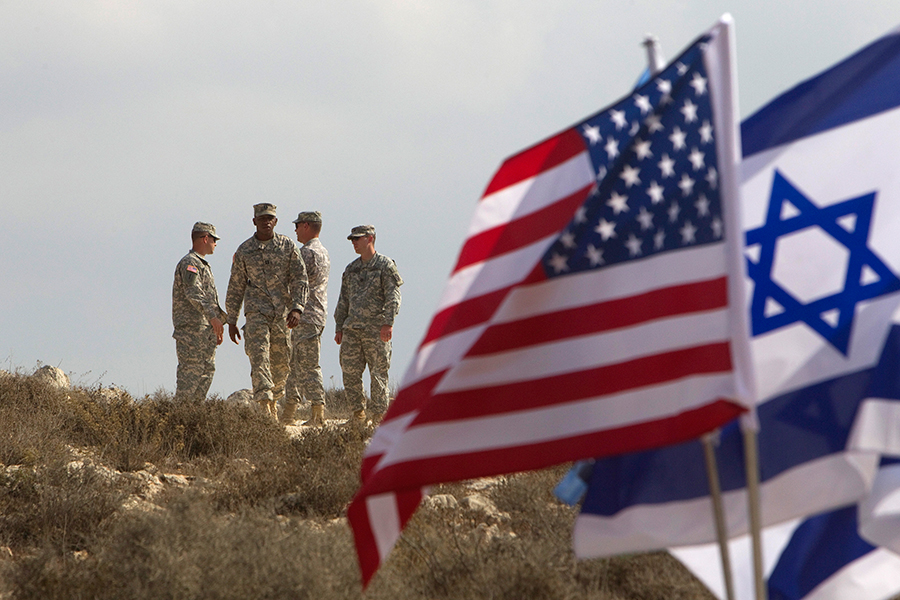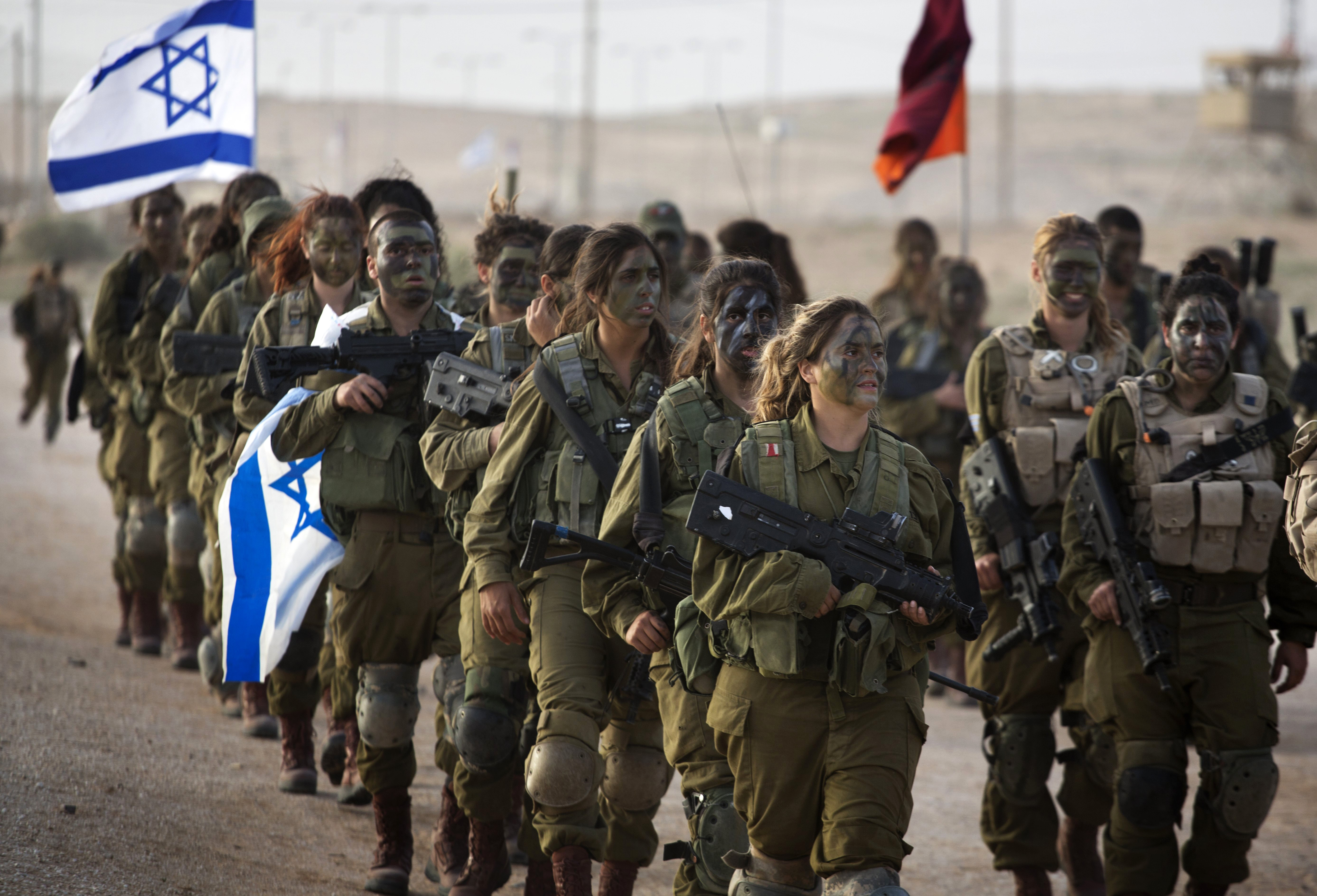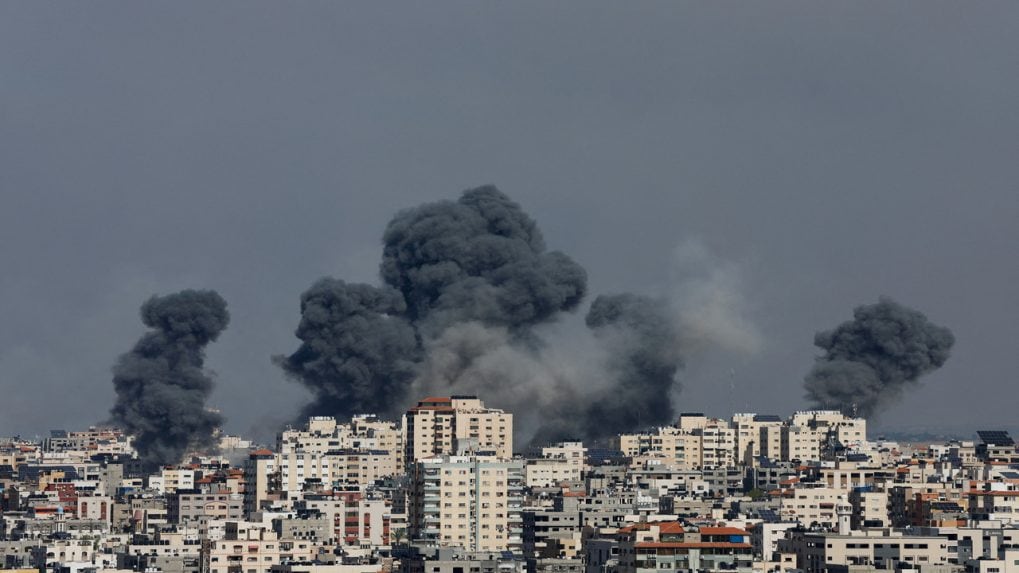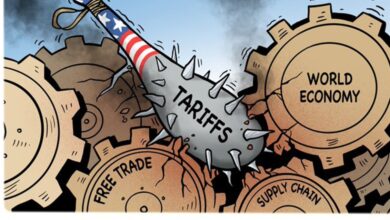United States Deploys Military Support to Israel Amid Escalating Tensions In Show of Solidarity
The United States has taken a significant step in demonstrating its unwavering support for Israel during a period of escalating tensions in the Middle East. In response to deadly attacks by Hamas and amid suspicions that these actions were intended to disrupt potential normalization between Israel and Saudi Arabia, the U.S. has announced the deployment of multiple military ships and aircraft closer to Israel's vicinity. This move by Washington holds profound implications not only for the immediate situation but also for the delicate geopolitics of the region.

The United States is poised to demonstrate its support for Israel by dispatching multiple military vessels and aircraft closer to the region, according to Defense Secretary Lloyd Austin.
The move comes as Washington suspects that the recent deadly attacks by Hamas were driven by a desire to disrupt the potential normalization of relations between Israel and Saudi Arabia.
In the wake of the violent actions carried out by Hamas in Israeli towns, the nation experienced its bloodiest day in decades last Saturday.
Thereafter, Israel responded with air strikes in Gaza on Sunday, resulting in reported casualties on both sides; the escalating violence poses a significant threat to the stability of the Middle East, potentially igniting a major conflict.
As per reports, at least three Americans were killed, as a U.S. memo indicates.

United States Steps Into Action
Defense Secretary Austin issued a statement announcing the deployment of the USS Gerald R. Ford Carrier Strike Group to the Eastern Mediterranean, positioning it closer to Israel; the group includes the aircraft carrier, a guided missile cruiser, and four guided missile destroyers.
Additionally, Austin disclosed that the United States has taken measures to bolster the presence of U.S. Air Force fighter aircraft squads in the region, consisting of F-35, F-15, F-16, and A-10 aircraft; the United States has also committed to supplying munitions to Israel.
Following a call with Israeli Prime Minister Benjamin Netanyahu, U.S. President Joe Biden confirmed that additional assistance for the Israeli Defense Forces was en route, with further support planned in the days ahead, as reported by the White House; at the same time, Vice President Kamala Harris also engaged in discussions with Israeli President Isaac Herzog.
In a subsequent statement, the Pentagon elaborated that Secretary Austin had spoken with Israeli Defense Minister Yoav Gallant to provide updates on U.S. responses and express solidarity with the people of Israel in their efforts to restore security and safety following the terrorist attack by Hamas.
The statement reiterated the United States’ unwavering support for Israel’s right to self-defence and that the U.S. actions aimed to enhance its military posture in the region and strengthen regional deterrence efforts.
Meanwhile, a small group of pro-Palestinian demonstrators gathered in Times Square, New York City, and near the White House in Washington, D.C., expressing their opposition to the U.S. backing of Israel.
Some of the protesters displayed banners bearing slogans such as “End U.S. aid” and “resistance is not terrorism”; New York Governor Kathy Hochul had previously criticized plans for such demonstrations, denouncing them as morally repugnant.

U.S. Secretary of State Antony Blinken suggested that one possible motivation behind the attacks might have been to disrupt efforts to foster closer ties between Saudi Arabia and Israel, as well as with other countries interested in normalizing relations with Israel.
Hamas, on the other hand, contended that the strikes were in response to heightened Israeli actions against Palestinians in the West Bank, Jerusalem, and Israeli prisons, as well as concerns regarding Jerusalem’s Al-Aqsa Mosque, the ongoing blockade of Gaza, and Israel’s normalization with regional countries.

The Middle East Corridor
Prime Minister Benjamin Netanyahu previously expressed optimism about the prospect of peace with Saudi Arabia, believing it could reshape the Middle East.
However, despite the recent attack, the United States affirmed its support for continued efforts towards normalization between Saudi Arabia and Israel.
U.S. Deputy National Security Adviser Jon Finer conveyed that the United States believes it is in the best interests of both nations to pursue this possibility.
While acknowledging relative calm in most of Israel on Sunday, Blinken noted the ongoing intense fighting in Gaza, an enclave under Israeli blockade that has witnessed sustained protests by youth groups due to longstanding grievances related to the Israeli military presence, the Palestinian national cause, and economic challenges.
Blinken also pointed out that there was no immediate evidence linking Iran to the recent attack in Israel; however, he also acknowledged the longstanding ties between Iran and Hamas, which governs Gaza.
The Last Bit, As the United States reinforces its commitment to Israel by deploying military assets closer to the region, tensions in the Middle East remain at a critical juncture.
This show of solidarity is a clear signal that Washington stands firmly by its ally, Israel, during these challenging times; while the immediate focus is on restoring stability and security to the region, the broader implications of this move on regional dynamics, especially regarding the prospect of Saudi-Israeli normalization, will undoubtedly continue to shape the future of the Middle East.
The U.S. has emerged as a critical player in the efforts to de-escalate tensions and find a path to lasting peace in the region as it seeks to steer through the complicated relations and history between Israel and Palestine.




